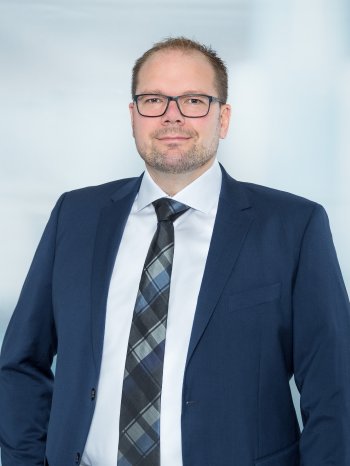The Wi-Fi industry eagerly awaits the World Radio Conference in Dubai next week. A hot topic will be the new frequencies for Wi-Fi. The question of the exclusive use of the upper 6-gigahertz band for Wi-Fi particularly concerns attendees from Europe: The future use of license-free Wi-Fi is being decided in Dubai, and Michael Müller, Vice President Wireless LAN and Switches at LANCOM Systems, is clearly in favor of reserving the entire 6-GHz band exclusively for Wi-Fi in the EU. This demand is supported by a broad alliance of network operators, hardware manufacturers, and associations.
Michael Müller: “A lot is at stake in Dubai over the next few weeks. In 2021, the EU paved the way with the license-free use of the lower 6-GHz band for Wi-Fi. That was a conscious and absolutely correct decision. Back then, it effectively doubled the spectrum available in Europe: The additional 500 MHz represented a milestone for ultra-fast Wi-Fi, a key technology on the way to the wireless gigabit society. The new Wi-Fi 6E technology enables completely new scenarios, for example in real-time applications such as augmented and virtual reality, where the intensive computation of images can be outsourced from the glasses to powerful servers. In the corporate sector, for example in production, the use of the 6-GHz frequency range is a driver for many innovative new applications, such as in the area of robotics.
As great as this achievement is, we cannot rest easy. The demand for connectivity is constantly increasing and can only be met in the future if additional frequencies are released for Wi-Fi. To unlock the full potential of Wi-Fi and keep pace with technological developments globally, the EU has to act.
The exclusive dedication of the full 6-gigahertz band to license-free Wi-Fi is crucial for the cost-effective access to the ever-increasing range of digital services, be it in the private sector, the corporate sector, or the public sector, including education and healthcare services. They all need gigabit speeds. Wi-Fi is only able to transfer data to one user per unit of time without interference, so more bandwidth is absolutely essential for fast data transmission, especially in environments with high user densities such as schools, lecture halls, or football stadiums.
Leading economies like the USA, Canada and South Korea are already miles ahead of us here, as they have reserved the entire 1,200-MHz band for Wi-Fi (5925 – 7125 MHz). Now it is up to Europe to follow suit and harmonize spectrum policy. The negotiations in Dubai are therefore fundamentally important for the direction of network policy in Europe, and thus indirectly for a continued economic development in the face of global competition.
Background:
The International Telecommunication Union (ITU) is the United Nations’ specialized agency responsible for the global regulation of frequencies. At the World Radio Conference in November and December, the course will be set for the worldwide use of frequencies. The WCR 2023 takes place in Dubai from November 20 to December 15.

